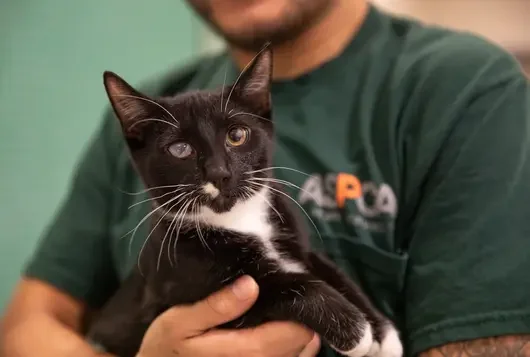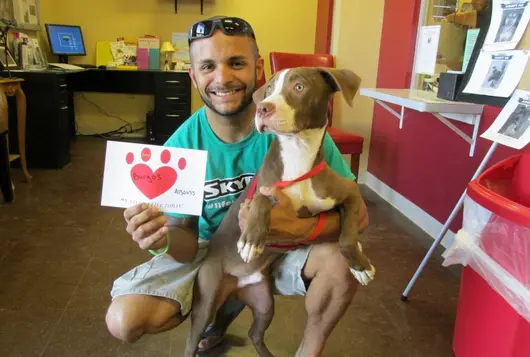Five Tips for Successful Grant Writing

Grant funds are crucial in strengthening and diversifying funding for non-profit organizations, contributing significantly to long-term sustainability. The ASPCA, as both a grantmaker and grant recipient, offers insights through our Foundation Partnerships team with five essential tips to navigate the different stages of grant writing.
1. Research and Cultivation
It’s essential to find potential funders who are the right fit for your organization. Here are a few easy steps to guide your research process.
- Identify Prospective Funders: Find grantors through your network, public listings and research tools like Candid’s Foundation Directory. Be sure to look both nationally and locally. Consider non-animal-centric grants too, such as those related to supporting neighborhoods, human services and public health.
- Review Funders' Guidelines: Ensure alignment with funders' priorities (e.g., avoid requesting funding for spay/neuter programs if they don't support medical expenses).
- Effective Outreach: After identifying potential funders, initiate contact through a phone call, email or letter of inquiry. Consider sharing a brief introductory document about your organization. Introduce yourself, your organization and your programs. Highlight how your priorities align with the funder's mission, and actively listen to their interests to build strong relationships.
2. Grant Writing
Begin the grant writing process early to ensure ample time for research, planning and crafting a strong proposal. Standard components include a cover letter, narrative and budget, but requirements vary by funder.
Take these steps to help:
- Plan Your Time: Identify the deadline and work backward to develop a timeline. Collaborating with team members and gathering materials like program data and financial reports can take time. Be sure to allocate enough time for writing and reviews to ensure your grant is strong and complete.
- Team Involvement: Decide who will write the proposal—staff, volunteer, board member or consultant. You don’t have to be a grant writer to write a compelling proposal! (See writing tips below.) Involve program staff for project insights and include multiple team members in planning, drafting and reviewing.
- Follow Instructions: Adhere strictly to guidelines, including word count, format and deadlines. Missing any detail can jeopardize your funding.
Writing Tips:
- Always customize, adjusting your style, tone and format based on your audience. Review your proposal from the funder’s perspective. Make it easy for them to understand why funding your work is a good investment and how it matches their interests.
- Illustrate the need for funding with a statement that describes the program, how it will be implemented and how it will deliver a solution. Use real examples and stories to demonstrate the impact of your work.
- Include specific measurable goals, metrics and data to show how you will assess the success of your project.
- Leave ample time for editing and for other people to review and proofread. You want to submit a polished product without errors.
- Keep commonly required files together for quick and easy reference for funding opportunities. Standard attachments include an IRS letter of determination, financial documents like W9 and 990 forms, current and previous years’ budget vs. actuals, a list of your board of directors, bios of key staff and success stories of your work from newsletters and press clips.
“When determining who will write the proposal, involve program staff because they know the work first-hand and can explain a program’s concept, details about how a project will be accomplished, outcomes, staffing and expenses.”
3. Decisions & Agreements
- If Your Request is Declined: Don’t be discouraged—use it as a learning opportunity. A rejection might be the first step of a funding relationship, so send a thank-you note, ask for feedback to strengthen future proposals and stay in touch in case you reapply. If the grant is clearly not a match, move on and focus on other priorities.
- If You Receive the Grant: Celebrate! Notify your team and thank the grantor immediately, explaining how the funds will benefit your organization. For large grants, consider a personal thank-you call, a message from the CEO or staff or a creative gesture to show appreciation.
- Grant Agreements: A grant agreement is a formal contract outlining funding conditions. Familiarize your team with its details, including roles, responsibilities, reporting deadlines and deliverables. Ensure everyone knows who tracks data and implements the grant. Pay attention to requirements for grantor acknowledgment, such as joint press releases or marketing mentions.
4. Reporting
Grant reporting, whether formal or informal, is an opportunity to demonstrate the impact of giving and build long-term funder partnerships.
Once the grant is in place, establish expectations with staff for reports and communications. Carefully track deadlines and plan for stewardship and reporting. Address data needs now to be prepared when it’s time to put together your report.
You can also keep grantors updated on progress informally with regular phone calls or meetings. Share good news such as program milestones and media attention and be honest about obstacles or changes. Proactive, strategic communication is key, especially for grantors invested in the impact of their contribution.
5. Renewal
Not all funders renew grants, but if they do, plan early. Prepare narrative and budget updates before the grant ends (which is a great way to combine efforts with final grant reporting). If no guidelines are provided, share regular updates and inquire about the renewal process. Be proactive, clear and respectful in communication.
After you've developed the relationship, don't be afraid to ask for more. Be upfront about how your program evolves and your funding needs.
The ASPCA funds organizations and programs that support our mission to prevent animal cruelty nationwide. Grants to animal welfare groups are essential to advancing our collective goals.
Learn more about ASPCA grant opportunities and continue your search for funding opportunities at Other Animal Welfare Funders.
We have lots more on this subject:



